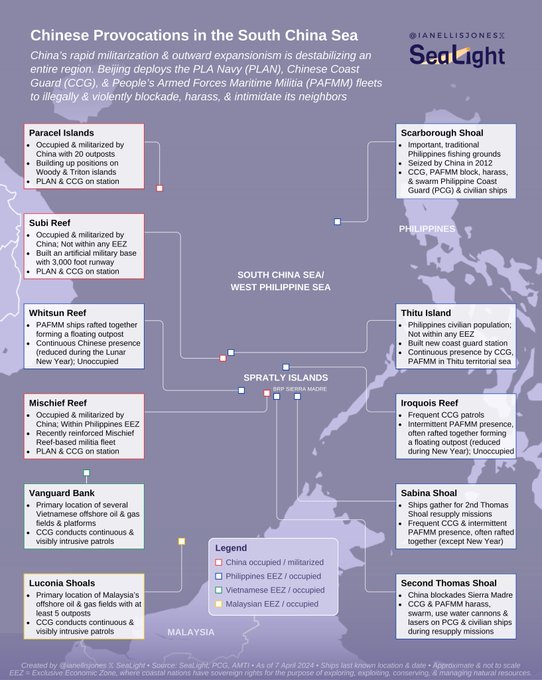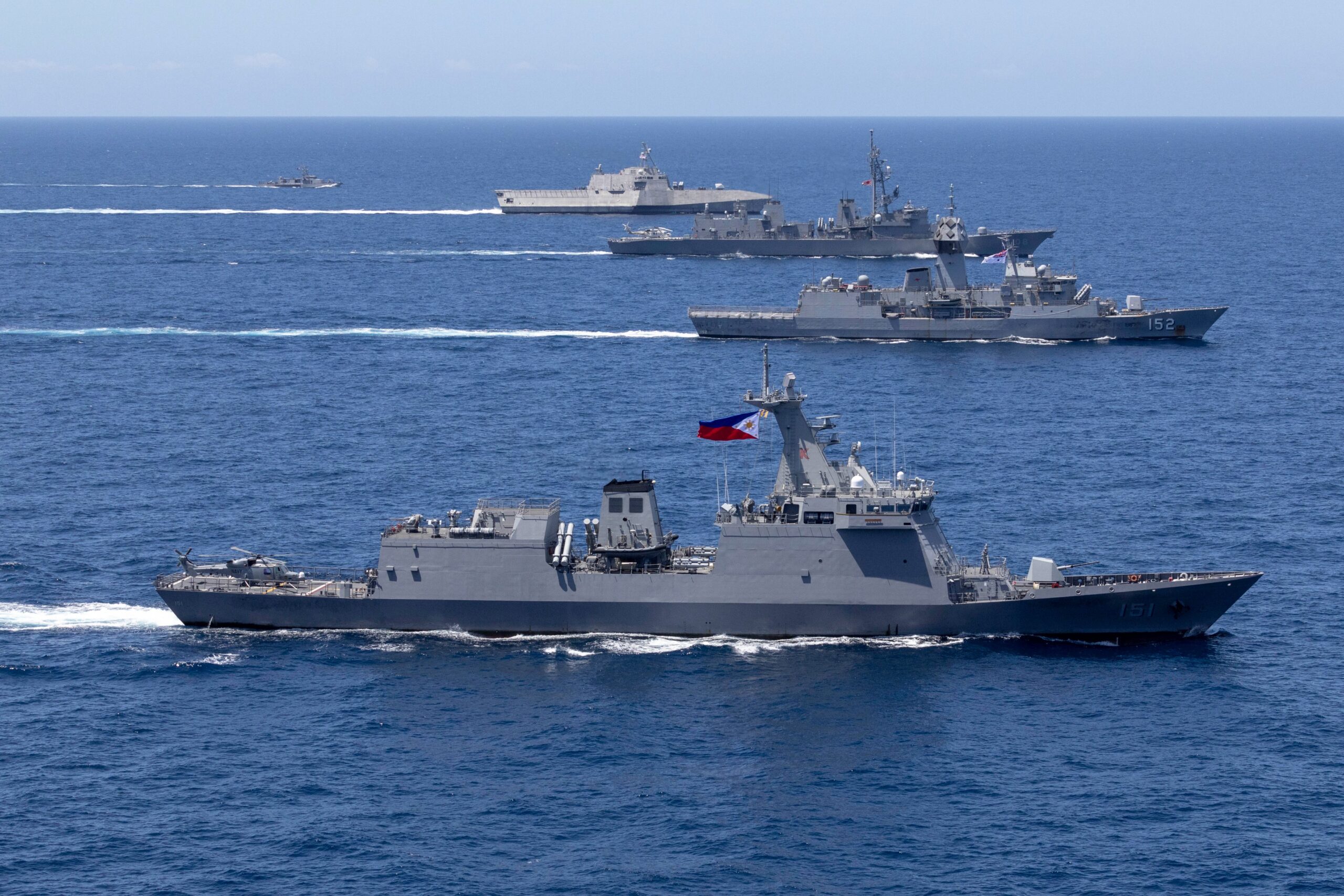In a display of unity and resolve, the United States, Japan, Australia, and the Philippines have conducted joint maritime exercises in the contested waters of the South China Sea. These drills, aimed at supporting a free and open Indo-Pacific region, signify a collective effort to maintain stability and uphold the principles of freedom of navigation in the strategic waterway.
Significance of the South China Sea
China conducts "combat patrols" in South China Sea, its army says, the same day Philippines, US, Japan and Australia hold their first joint drills in disputed waters pic.twitter.com/nixw7HRNXL
— TRT World Now (@TRTWorldNow) April 7, 2024
The South China Sea is a vital maritime trade route, with an estimated one-third of global shipping passing through its waters annually. However, the region has been a source of ongoing territorial disputes, with China making sweeping claims over vast swaths of the sea, overlapping with the exclusive economic zones of other nations.
Preserving Regional Stability and Security

The joint maritime exercises involving the navies of the United States, Japan, Australia, and the Philippines serve as a clear message to Beijing regarding the importance of adhering to international laws and norms in the South China Sea. By working together, these nations aim to promote stability, deter potential conflicts, and ensure the free flow of maritime trade in the region.
U.S. Commitment to Regional Allies
As a key player in the Indo-Pacific, the United States has reaffirmed its commitment to supporting its regional allies and partners. The participation of U.S. naval assets in the exercises underscores the nation’s unwavering stance on preserving freedom of navigation and upholding the rules-based international order.
Japan’s Growing Regional Role
Japan, a pivotal U.S. ally in the region, has taken an increasingly active role in maritime security efforts. By joining these exercises, Japan demonstrates its resolve to contribute to regional stability and counter any attempts to undermine the freedom of navigation in vital trade routes.
Australia’s Strategic Interests
As a maritime nation with significant economic interests in the Indo-Pacific, Australia’s participation in the drills highlights its strategic commitment to maintaining a rules-based order in the region. The exercises provide an opportunity for the Australian Navy to enhance interoperability with its allies and partners.
The Philippines’ Territorial Disputes
For the Philippines, a country embroiled in territorial disputes with China in the South China Sea, these joint exercises hold particular significance. By participating alongside regional powers, the Philippines sends a strong message of resolve in defending its maritime claims and interests.
Promoting Cooperation and Deterring Aggression
The joint maritime exercises not only serve as a demonstration of collective naval capabilities but also underscore the importance of cooperation and dialogue in resolving territorial disputes. By showcasing a united front, the participating nations aim to deter any potential aggression or attempts to undermine the freedom of navigation in the South China Sea.
As tensions continue to simmer in the region, these exercises serve as a reminder of the international community’s commitment to upholding the principles of a free and open Indo-Pacific. Through sustained cooperation and adherence to international laws, the path toward lasting peace and stability in the South China Sea can be paved.

